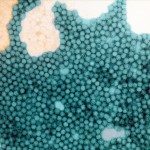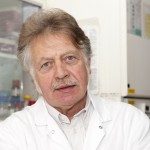Link to Pubmed [PMID] – 34468320
Link to DOI – 10.1684/vir.2021.0914
Virologie (Montrouge) 2021 Aug; 25(4): 62-73
Genetic recombination is a major force driving the evolution of some species of positive sense RNA viruses. Recombination events occur when at least two viruses simultaneously infect the same cell, thereby giving rise to new genomes comprised of genetic sequences originating from the parental genomes. The main mechanism by which recombination occurs involves the viral polymerase that generates a chimera as it switches templates during viral replication. Various experimental systems have alluded to the existence of recombination events that are independent of viral polymerase activity. The origins and the frequency of such events remain to be elucidated to this day. Furthermore, it is not known whether non-replicative recombination yields products that are different from recombinants generated by the viral polymerase. If this is the case, then non-replicative recombination may play a unique role in the evolution of positive sense RNA viruses. Finally, the sparse data available suggest that non-replicative recombination does not necessarily involve only virus-specific sequences. It is thus possible that the non-replicative recombination observed in virus-focused studies may in fact reveal a more generalized mechanism that is non-specific to virus RNAs.



